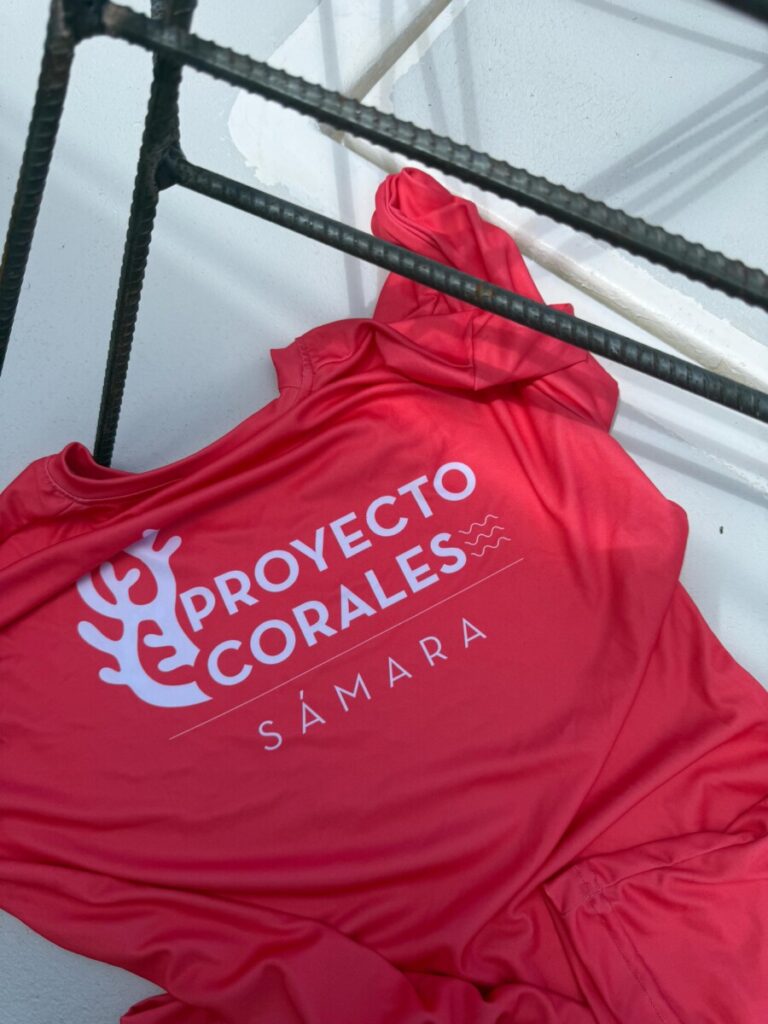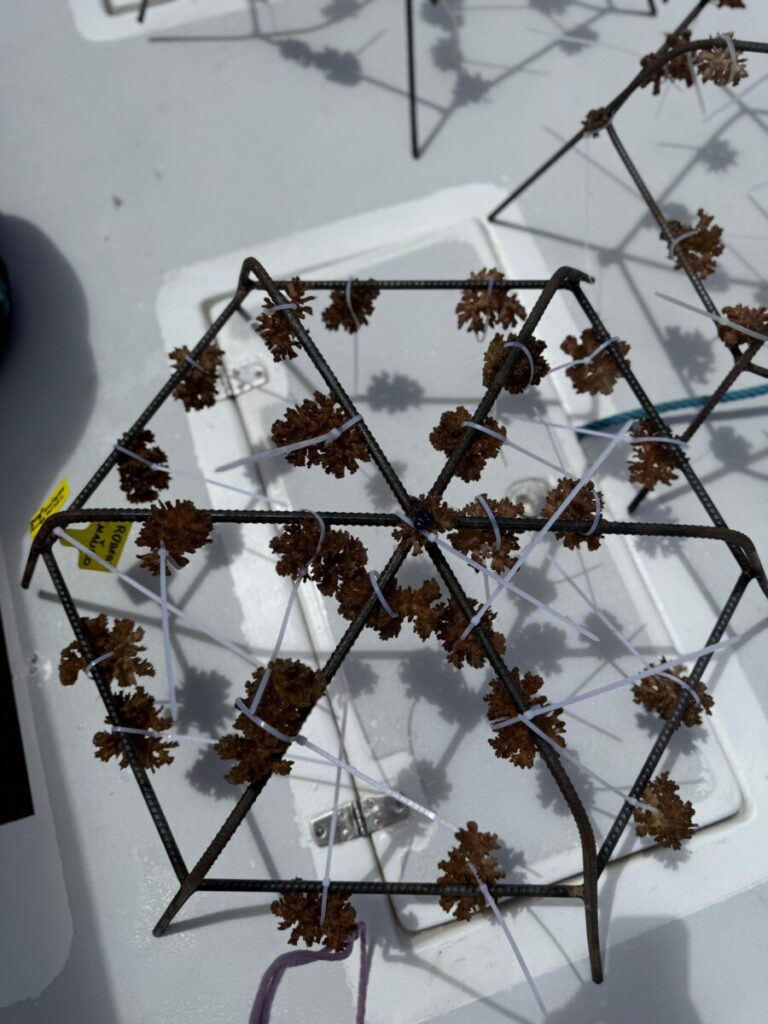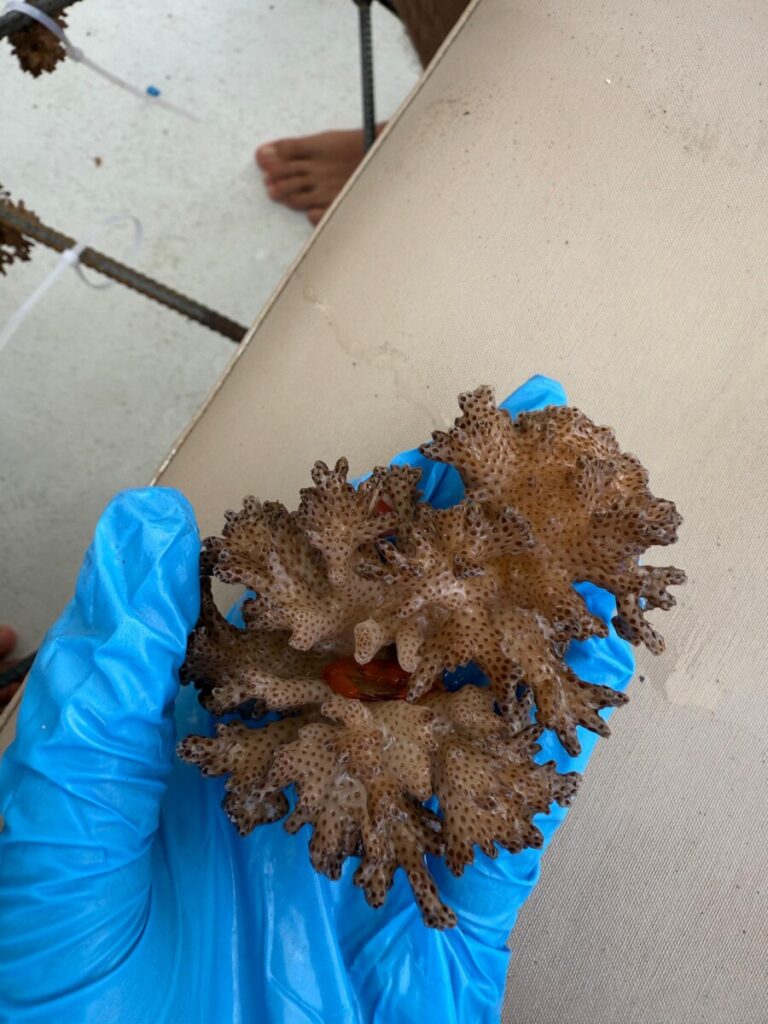The Coral Restoration Project in Sámara, Costa Rica
In the heart of Costa Rica’s Pacific coast, where warm and clear waters wash the shores of Sámara, a group of volunteers and professionals from Proyecto Corales have been working for months—and this is a long-term project—to bring life back to one of the planet’s most important and threatened ecosystems: coral reefs.
If you do your international volunteer experience with Cooperating Volunteers in Costa Rica, you’ll be able to take part in this activity and learn from the inside how it really works.
At Cooperating Volunteers, we create impactful experiences that care for people and the world around us. This time, the focus is on coral restoration and planting—an initiative that combines science, environmental awareness, and direct action for the benefit of the ocean.

What is the project about?
The coral restoration project is based on fragmentation and replanting techniques. Through dives in selected areas, volunteers work alongside diving experts (even participants with diving certification can join this part of the dive) to collect healthy coral fragments, which are cultivated in underwater nurseries until they reach an appropriate size for transplanting.
Once ready, these fragments are strategically planted in degraded areas of the reef, thus promoting natural regeneration. The entire process includes constant monitoring, removal of invasive species, and scientific documentation to ensure the success of the restoration.
In addition to hands-on work, volunteers receive theoretical training in marine biology, coastal conservation, and sustainable diving techniques, becoming true agents of change.
During the activity, we travel by boat alongside Proyecto Corales, and the divers collect these still-small fragments, which are cut and placed again on more spaced-out metal “spiders” so they can continue growing. Once this structure is assembled, the divers return these spiders to the seabed so growth can continue.

Why are corals so important?
Corals are not just beautiful structures decorating the seabed—they are vital ecosystems for marine life and for human beings.
1. Home to biodiversity
Coral reefs are known as the “rainforests of the sea.” Although they cover only about 0.1% of the ocean’s surface, they host approximately 25% of all marine species. Fish, crustaceans, mollusks, turtles, sharks, and thousands of other species rely directly on them for food, reproduction, or protection.
2. Natural barriers against storms
Corals form structures that act as natural barriers against hurricanes, swells, and coastal erosion. They dissipate the force of waves, protecting coastal communities, infrastructure, and beaches. In a world facing increasingly extreme weather events, their presence is vital for the safety of many inhabited areas.
3. Economic livelihood
Millions of people around the world rely economically on reefs. Activities such as artisanal fishing, ecotourism, recreational diving, and underwater photography revolve around these ecosystems. It’s estimated that reefs generate billions of dollars per year in income for local economies, especially in tropical countries like Costa Rica.
4. Allies in medicine
Some organisms living on reefs have unique properties with great potential in modern medicine. Scientific research has already extracted compounds from sponges, corals, and mollusks to develop treatments for diseases such as cancer, HIV, Alzheimer’s, and various bacterial infections. Protecting corals also means protecting a potential source of cures.
5. Climate and water quality regulators
Coral reefs contribute to the ocean’s chemical balance, capturing carbon and helping filter the water. When healthy, they help maintain the clarity and quality of marine water, benefiting other species and ecosystem balance.

What’s happening to corals?
Despite their importance, corals are in crisis. It’s estimated that more than 50% of the world’s reefs have disappeared or are severely damaged. The main factors include:
- Climate change (rising sea temperatures cause coral bleaching)
- Ocean acidification
- Marine pollution
- Destructive fishing
- Irresponsible tourism
That’s why projects like the one led by Cooperating Volunteers in Sámara are so crucial: restoring reefs means restoring ocean health, protecting thousands of species, and ensuring the well-being of human communities that directly or indirectly depend on the sea.
Volunteering with purpose
Taking part in this project in Sámara is not just a chance to explore one of Costa Rica’s most beautiful corners, but also to actively contribute to a real solution in the face of a global environmental crisis. Volunteers don’t just plant corals—they plant hope.
Cooperating Volunteers offers a transformative experience, where learning, action, and connection with nature come together. Because taking care of the planet also means diving into it, listening to its needs, and acting with commitment.




